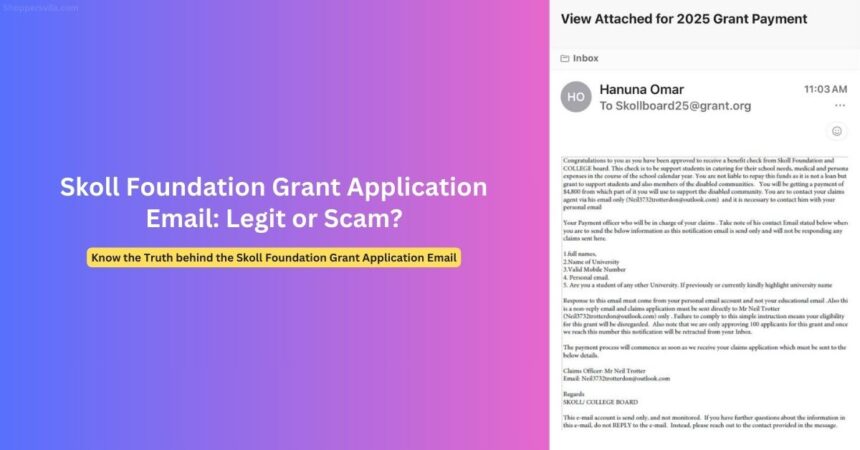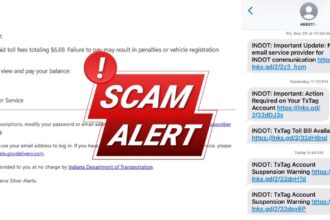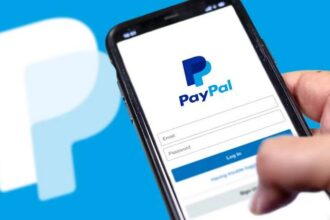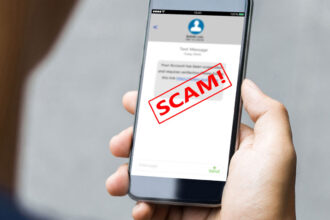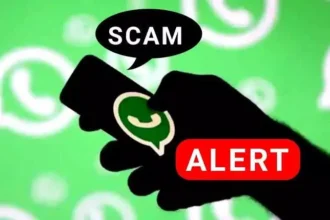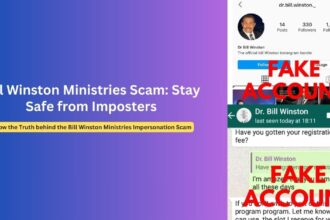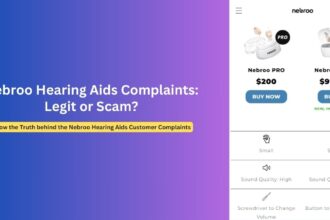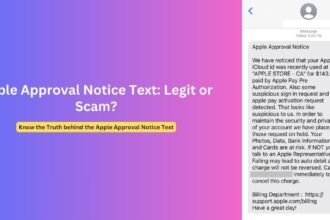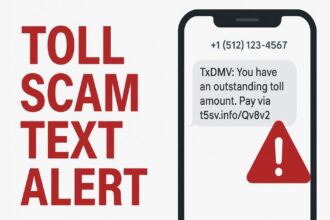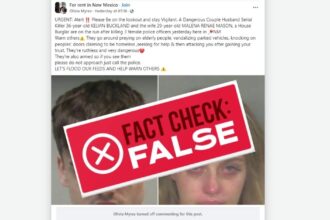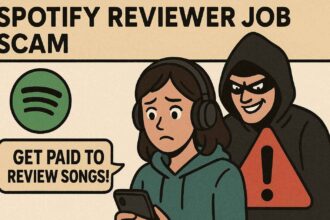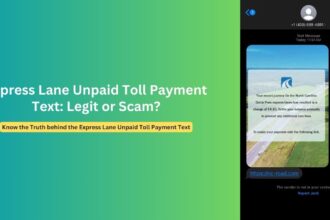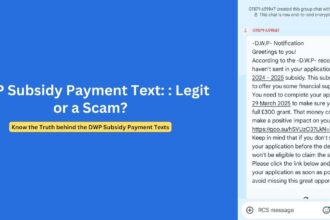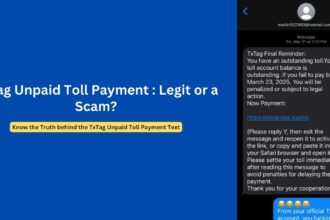As students return to campus this semester, a sophisticated phishing operation falsely using the Skoll Foundation name targets educational institutions nationwide
In recent months, college students across the country have reported receiving unexpected emails promising thousands in grant money from what appears to be the prestigious Skoll Foundation. These messages, landing directly in university email inboxes, offer an enticing proposition: free money with minimal requirements. But as multiple victims have discovered, these generous offers are elaborate scams designed to steal personal information and potentially much more.
“I almost fell for it because I had just received a legitimate unexpected scholarship two weeks earlier,” confessed one student on Reddit. “Seeing this made me think scholarships and grants just loved to rain down on me.”
The real Skoll Foundation has been forced to publish explicit warnings about these fraudulent communications, confirming they do not approach individuals with unsolicited grant opportunities. This growing threat has prompted educational institutions to alert their students about the dangers of responding to these deceptive messages.
Overview of the Skoll Foundation Grant Application Scam Emails
The scam begins innocuously enough—an unexpected email arrives in a student’s institutional inbox, allegedly from a Skoll Foundation representative. The message congratulates the recipient on being selected for a substantial grant, typically around $4,800, without any prior application. These communications often incorporate official-looking elements such as foundation logos, staff photos, and links pulled directly from the legitimate Skoll Foundation website to enhance their credibility.
What makes this scam particularly effective is its targeting method. By specifically sending messages to educational email addresses (.edu domains), scammers exploit the fact that students regularly receive legitimate notifications about financial aid, scholarships, and grants through these channels. The familiarity of receiving financial opportunity messages through official school email creates an environment where students may be less suspicious.
The scammers further increase their chances of success by mentioning that part of the money should be used for charitable purposes, such as “supporting disabled communities,” which adds a veneer of legitimacy and appeals to recipients’ sense of social good—values that align with the actual Skoll Foundation’s mission.
How the Scam Works: A Step-by-Step Breakdown
The Skoll Foundation grant scam typically unfolds in several calculated stages:
- Initial Contact: An unsolicited email arrives in the student’s educational email inbox, claiming they’ve been “approved” for a grant or award from the Skoll Foundation.
- Channel Switching: The message instructs recipients to respond using their personal email rather than their institutional account. This crucial step helps scammers evade university spam filters and security systems.
- Information Collection: Once contact is established through personal email, scammers request basic personal information including full name, address, phone number, occupation, and nationality.
- Financial Deception: In some variations, victims receive a fraudulent check. They’re instructed to deposit it and send a portion to supposed charitable causes or “disabled students.” By the time the check bounces days or weeks later, the victim has already sent real money to the scammers.
- Identity Theft: The collected personal information can be used for identity theft, creating fraudulent accounts, or targeting the victim with further sophisticated scams.
“These messages are fraudulent and in no way associated with the Skoll Foundation or any foundation employees,” states the official Skoll.org warning. “The Skoll Foundation does not solicit donations or request any type of administrative or handling fees for its grant applications or for grantees to receive funding.”
Types of Skoll Foundation Impersonation Frauds
Investigations reveal that scammers use various approaches while impersonating the Skoll Foundation:
1. Direct Grant Scams
The most common approach involves offering unsolicited grants ranging from $2,000 to $5,000, typically targeting students. Recipients are told they’ve been “selected” based on their academic performance or other unspecified criteria.
2. Lottery/Award Notifications
Some victims report receiving notifications claiming they’ve won a Skoll Foundation lottery or award. These messages often request handling fees or personal information to “process” the winnings.
3. Job Opportunity Scams
A more sophisticated variation involves fake job offers allegedly sponsored by the Skoll Foundation. These scams target both students and professionals, requesting personal information for “background checks” or charging application fees.
4. Fake Check Schemes
Perhaps the most financially damaging version involves sending victims actual counterfeit checks. Recipients are instructed to deposit the funds and send a portion elsewhere, often under the guise of supporting charitable causes aligned with the Foundation’s mission.
5. Investment Opportunities
Some scammers offer fictional investment opportunities supposedly backed by the Skoll Foundation, promising extraordinary returns while requesting upfront payments or investments.
Red Flags: Identifying Fake Skoll Foundation Email Communications
These fraudulent communications typically contain several identifiable warning signs:
- Unsolicited offers: The legitimate Skoll Foundation does not approach individuals with unsolicited grant opportunities or scholarships.
- Urgency tactics: Scam emails often create artificial time pressure, claiming limited spots (“only approving 100 applicants”) or imminent deadlines.
- Poor grammar and unprofessional formatting: While some scams are sophisticated, many contain spelling errors, inconsistent formatting, or awkward phrasing.
- Suspicious email addresses: Legitimate Skoll Foundation communications come from @skoll.org domains. Scammers use variations like “[email protected]” or incorporate foundation names into gmail/hotmail/outlook addresses.
- Requests for personal email use: Insisting that recipients switch from institutional to personal email is a major red flag, designed to bypass university security systems.
- Requests for sensitive information: Any grant supposedly requiring personal details, banking information, or social security numbers before approval should be viewed with extreme suspicion.
- Mandatory fees or deposits: The real Skoll Foundation never requires recipients to pay application fees, insurance, processing charges, or deposits to receive funding.
- Charitable redistribution requirements: Many victims report being told they must donate part of their grant to “disabled communities” or other causes—a manipulation tactic designed to make the scam seem more legitimate while setting up the fake check scheme.
How to Protect Yourself from Foundation Grant Scams
Educational institutions and cybersecurity experts recommend several proactive measures to avoid falling victim to these scams:
- Verify through official channels: If you receive an unexpected grant offer, contact the foundation directly through their official website—never using contact information provided in the suspicious email.
- Research legitimate application processes: Reputable foundations like Skoll have clear application procedures outlined on their websites. Unsolicited grants are extremely rare.
- Report suspicious communications: Forward potential scam emails to your institution’s IT security department and the legitimate foundation being impersonated.
- Never pay to receive money: Legitimate grants never require upfront payments, processing fees, or taxes before disbursement.
- Be skeptical of unexpected windfalls: As one university cybersecurity advisor notes, “If it sounds too good to be true—especially when it involves free money you never applied for—it almost certainly is.”
- Check official warnings: Many foundations, including Skoll, maintain pages specifically warning about scams misusing their name. A quick search for “[foundation name] + scam” often reveals if there’s a known problem.
- Never deposit checks from unknown sources: If you receive an unexpected check, verify its legitimacy with your bank before depositing—especially if you’re asked to send some of the money elsewhere.
Real-World Impacts and Victim Experiences
The consequences of falling for these scams extend beyond simple embarrassment. One recent victim shared their experience on Reddit: “I fell for this scam is there anything I can do?” Another explained: “I got something similar to this and sent them my info and they even sent a check. I finally realized I should google it first and stuff about scams immediately came up. Can they do stuff with that info???”
These concerns highlight the real anxiety victims face after sharing personal information. While some victims only lose time, others face financial losses when counterfeit checks bounce after they’ve already sent money to scammers. Additionally, identity theft remains a serious risk when personal information is compromised.
University officials report these scams intensify during key periods in the academic calendar—particularly at the beginning of semesters when students expect financial aid communications, and near graduation when many scholarships and grants become available.
Frequently Asked Questions
1. Is that Skoll Foundation grant application email or text legitimate?
No. The Skoll Foundation does not send unsolicited grant offers via email or text. The foundation has explicitly stated they do not approach individuals offering grants or scholarships. All legitimate Skoll Foundation grants follow specific application processes outlined on their official website.
2. Is the Skoll Foundation itself legitimate?
Yes. The Skoll Foundation is a legitimate and respected philanthropic organization founded by Jeff Skoll, the first president of eBay. The foundation focuses on investing in social entrepreneurs and other changemakers who help solve the world’s most pressing problems. However, scammers frequently impersonate this reputable foundation to lend credibility to their fraudulent schemes.
3. What should I do if I’ve already responded to one of these scam emails?
If you’ve shared personal information, monitor your accounts closely for suspicious activity and consider placing a fraud alert on your credit reports. If you’ve sent money or deposited a check, contact your financial institution immediately. Report the scam to your university’s IT department, the real Skoll Foundation, and the FBI’s Internet Crime Complaint Center (IC3).
4. How can I verify if a grant opportunity is legitimate?
Always research the organization through their official website (www.skoll.org in this case), not through links provided in emails. Contact the foundation directly using contact information from their official website to verify any offers. Legitimate foundations have established application processes and don’t typically award grants to individuals who haven’t applied.
5. Can scammers do anything with my basic information like name and address?
Unfortunately, yes. Even basic information can be used for identity theft, targeted phishing attempts, or to build more convincing scams. Scammers may combine this information with data from other sources to create comprehensive profiles. Always be cautious about sharing personal details, even those that seem harmless.
Protecting the Academic Community
Universities are increasingly implementing protective measures against these scams, including enhanced email filtering systems and student education campaigns. Many institutions now include cybersecurity awareness in orientation programs, with specific warnings about scholarship and grant scams.
“These scammers specifically target students because they know young people often expect communications about financial aid and may be less experienced at identifying fraud,” explains one university IT security director. “They’re exploiting the trust students place in their educational email systems.”
Educational institutions recommend students report suspicious emails to campus IT security departments and forward them to specialized addresses like phishing@[university].edu for investigation. This reporting helps universities adjust their security filters and warn other students about emerging threats.
Conclusion: Vigilance in the Digital Age
As digital scams grow increasingly sophisticated, vigilance remains the best defense. The Skoll Foundation grant scams represent just one variation of the countless phishing attempts targeting students and academic institutions each year.
What makes these scams particularly effective is their targeted nature—reaching students through trusted channels with offers that align with their expectations and needs. By understanding the warning signs and verification processes, students can protect themselves from these deceptive practices.
The real Skoll Foundation continues to fight against these fraudulent impersonations, regularly updating their warnings and working with law enforcement to identify perpetrators. Meanwhile, educational institutions are enhancing their security measures and awareness programs to help protect vulnerable student populations.
For students navigating the complex world of grants, scholarships, and financial aid, the old adage remains true: if an unexpected offer seems too good to be true, it probably is. Legitimate opportunities rarely arrive unsolicited in your inbox—they require applications, eligibility verification, and never demand payment or personal information before approval.
By maintaining healthy skepticism toward unexpected windfalls and following verification best practices, students can protect themselves from these predatory scams while still pursuing legitimate financial aid opportunities.
